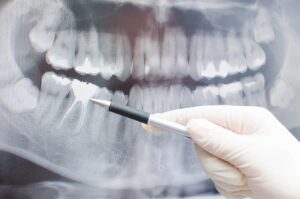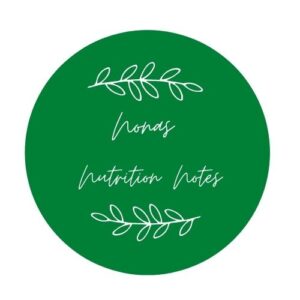Vitamin C Deficiency Symptoms May Include Muscle Loss in Older Adults.

What is the risk of a Vitamin C deficiency for you?
We all need Vitamin C in our diets. Sixty percent of adults do not consume adequate amounts. Therefore, potentially leading to Vitamin C deficiency symptoms. Vitamin C is responsible for multiple aspects of our health. including skin integrity, wound healing, tooth strength, and immunity. Additionally, Vitamin C deficiency may increase the risk of decreased muscle mass in older adults.
The 5 most common Vitamin C deficiency symptoms
- Swollen or bleeding gums (gingivitis or scurvy, in extreme cases)
- Slow wound healing or reopening of healed wounds
- Dry skin
- Tooth loss
- Reduced immunity
- And, in a recent study published in The Journal of Nutrition, Vitamin C deficiency may increase the risk of decreased muscle mass in older adults.
1. Swollen or bleeding gums: Vitamin C deficiency symptoms

Scurvy is the first known disease resulting from a Vitamin C deficiency. Scurvy was noted on a large scale in the mid-1700s. It was seen in sailors who had been away at sea for a length of time. Consequently, without any citrus in their diets, sailors exhibited symptoms such as bleeding and swollen gums, loosening, and loss of teeth, anemia, and joint pains.
James Lind, a medical apprentice aboard a navy vessel, observed scurvy first hand. He experimented with various remedies to help conquer the illness, such as vinegar, saltwater, a paste of herbs and lemons, and oranges. Those given the citrus fruit recovered in one week’s time. Therefore, the relationship of citrus to preventing scurvy was discovered.
It wasn’t until 1928, that ascorbic acid or Vitamin C was first isolated by Albert Szent-Gyorgyi and found to be the answer to scurvy in 1932. (2)
Today, scurvy is rare due to the availability of citrus and the popularity of orange juice on many breakfast tables. However, swollen or bleeding gums (gingivitis) can be Vitamin C deficiency symptoms.
Poor oral hygiene is usually the blame for gingivitis. However, one study (3), linked gingivitis to a mild Vitamin C deficiency. After treatment with Vitamin C supplementation, the gingivitis improved. Blood calcium levels also improved to normal.
An article (4) published in the International Journal of Environmental Research and Public Health, in July 2019, found “adults with a lower dietary vitamin C intake to have a higher incidence of periodontal disease”. Treatment with Vitamin C supplementation did improve some symptoms, such as bleeding gums associated with gingivitis. In other words, there was a positive relationship between Vitamin C and healthy gums.
2. Slow wound healing
Without adequate Vitamin C intake, healing of cuts and wounds may be delayed.

Vitamin C plays a role in wound healing by contributing to collagen formation. Collagen is the main component of connective tissues in the body. Skin, bones, and ligaments all contain collagen.
Following a break in the skin, the body sends blood cells called platelets to stop the bleeding, and collagen proteins to start re-building tissue. Vitamin C’s role in the healing process of the skin is in contributing to the formation of collagen.
Four case studies presented in an article on ScienceDirect.com (5) resulted in positive results following ascorbic acid (or Vitamin C) supplementation on surgical wound healing. Prior to supplementation, the wounds exhibited delayed healing, and in one instance, a wound reopened.
3. Dry skin

A lack of Vitamin C may result in dry and wrinkled appearing skin.
Vitamin C promotes collagen formation. By enhancing collagen, Vitamin C has an anti-aging effect. Collagen naturally decreases as we age. Therefore, with less collagen, the skin loses some of its elasticity and appears wrinkled. Consequently, collagen-containing lotions have become popular to help the skin remain supple.
Another function of vitamin C is its role as an antioxidant. By increasing Vitamin C intake, its antioxidant properties battle free radicals that lead to illness, aging, and a loss of some of the skin’s natural oils.
4. Tooth loss from Vitamin C deficiency

Lack of Vitamin C can weaken connective tissue and bone that support teeth, consequently resulting in tooth loss.
This is once again due to the essential role of Vitamin C in the formation of collagen. Collagen and connective tissue support the bones that anchor the teeth. As a result, lack of Vitamin C can weaken connective tissue and bone, and if left untreated, can result in tooth loss.
Also, because bacteria present in periodontal disease cause an inflammatory response, Vitamin C may lower the risk of tooth loss due to its antioxidant capacity to reduce inflammation (6).
5. Reduced Immunity

Lack of adequate Vitamin C can result in decreased immunity and increased susceptibility to disease and infection.
Our skin is a protective barrier. By its role in collagen synthesis, Vitamin C helps improve our immunity to outside injury and some environmental hazards, such as air pollution, tobacco smoke, and pesticides.
Also, tobacco may use increases susceptibility to bacterial and viral infections. This may be related to a Vitamin C deficiency, since smokers have a lower Vitamin C level and an increased recommended daily intake of 35 mg/day over non-smokers.
There has been controversy over the years as to the effect of Vitamin C in curing or warding off the common cold. However, some studies (7) indicate that Vitamin C may reduce the severity of the common cold, thereby suggesting a benefit to Vitamin C supplementation.
According to an article published in Nutrients, in November of 2017, “Vitamin C deficiency results in impaired immunity and higher susceptibility to infections”. The article states Vitamin C is necessary for the immune system to adequately respond and defend against invading bacteria and viruses. As a result, Vitamin C is an important component of avoiding illness.
6. Is decreased muscle mass (or sarcopenia) a Vitamin C deficiency symptom?

Increased muscle loss or sarcopenia in older adults may be Vitamin C deficiency symptoms.
With age, adults lose muscle mass. Sarcopenia is the loss of muscle tissue as a natural part of the aging process. Exercise helps to delay the loss, but a new study (8) points to the role of Vitamin C in reducing the severity and/or risk of sarcopenia.
Vitamin C helps form collagen. This is one mechanism by which Vitamin C contributes to muscle strength. The antioxidant properties of Vitamin C also help reduce muscle damage by reducing free radical damage.
The study published in the Journal of Nutrition in August 2020, suggets that Vitamin C has the potential to reduce the severity and/or risk of sarcopenia. Older adults who consumed “the highest amount of vitamin C in their diet had the greatest muscle mass”, with less muscle loss than those who consumed a diet low in Vitamin C. Women improved more than men.
Recommended Dietary Allowance of Vitamin C
The Recommended Dietary Allowance (RDA) of Vitamin C is 75 mg for women and 90 mg for men. The RDA is the amount required to avoid a deficiency, in an average healthy individual. For smokers, the daily amount of vitamin C is increased by 35 mg/day (1).
Since Vitamin C is not synthesized by the body it has to be obtained from the diet or supplements. Therefore, Vitamin C needs to be consumed and replenished on a daily basis.
The top 10 Foods Highest in Vitamin C

- Guavas
- Bell Peppers
- Kiwi
- Strawberries
- Oranges
- Papaya
- Broccoli
- tomatoes
- Kale
- Snow Peas
Eating five servings of a variety of fruits and vegetables a day provides ample amounts of Vitamin C. (2)
What about supplements?
But what if you are not getting enough? Vitamin C supplements can replace Vitamin C food sources if there is a dietary intolerance or inadequacy. Most supplements provide 500mg to 1000mg of Vitamin C, well above the RDA. However, Vitamin C is water-soluble. Therefore, it does not accumulate in the body. And, consequently, toxic levels do not develop. Vitamin C in excess is excreted in the kidneys.
The RDA for Vitamin C is the amount required to avoid a deficiency in an average healthy individual. Research is inconsistent regarding the recommended Vitamin C intake for specific symptoms or disease states.
In Conclusion...
Sixty percent of adults do not consume adequate Vitamin C, consequently increasing their risk of deficiency. However, by adding foods rich in Vitamin C daily, deficiency can be avoided. For example, including five or more servings each day will achieve your estimated needs.
Collagen Enhancer
While scurvy is rare today, swollen or bleeding gums (gingivitis) can be a symptom of a Vitamin C deficiency. Consequently, we need VitaminC, to strengthen our gums and the bones that support our teeth, to prevent tooth loss.
Wounds need collagen to rebuild tissue and heal. Without adequate Vitamin C intake, collagen synthesis may be impaired. In other words, healing of cuts and wounds may be delayed.
Collagen also helps to maintain the skin’s elasticity. Skin becomes dry and wrinkled appearing as collagen levels decrease with age. As a result, eating foods high in Vitamin C can help to maintain collagen synthesis and the skin’s elasticity. Consequently preserving a more youthful appearance.
Antioxidant, Immunity Booster
Boosting immunity is more important now than ever. Lack of adequate Vitamin C can result in decreased immunity and increase our susceptibility to disease and infection. In other words, making sure to get enough Vitamin C, can help keep you well.
Muscle mass preserver
Sarcopenia is the loss of muscle tissue as a natural part of the aging process. There is increasing evidence that muscle loss or sarcopenia in older adults may be Vitamin C deficiency symptoms.
Vitamin C plays an essential role in so many aspects of our health! From skin integrity and collagen formation, to wound healing and tooth stability, Vitamin C is essential. For immunity, anti-oxidation, and muscle mass, Vitamin C plays a critical role. In other words, we need adequate Vitamin C!
References:
- Delanghe JR, Langlois MR, De Buyzere ML, et al. Vitamin C deficiency: more than just a nutritional disorder. Genes Nutr. 2011;6(4):341-346. doi:10.1007/s12263-011-0237-7
- Padayatty SJ, Levine M. Vitamin C: the known and the unknown and Goldilocks. Oral Dis. 2016;22(6):463-493. doi:10.1111/odi.12446
- Omori K, Hanayama Y, Naruishi K, et al. Gingival overgrowth caused by vitamin C deficiency associated with metabolic syndrome and severe periodontal infection: a case report. Clin Case Rep. 2014;2(6):286-295. doi:10.1002/ccr3.114
- Tada A, Miura H. The Relationship between Vitamin C and Periodontal Diseases: A Systematic Review. Int J Environ Res Public Health. 2019;16(14):2472. Published 2019 Jul 11. doi:10.3390/ijerph16142472
- https://www.sciencedirect.com/science/article/pii/S2405857215300346
- https://www.oralhealthgroup.com/features/vitamin-c-update-implications-periodontal-health-healing/
- Hemilä H, Chalker E. Vitamin C for preventing and treating the common cold. Cochrane Database Syst Rev. 2013;(1):CD000980. Published 2013 Jan 31. doi:10.1002/14651858.CD000980.pub4
- Lucy N Lewis, Richard PG Hayhoe, Angela A Mulligan, Robert N Luben, Kay-Tee Khaw, Ailsa A Welch, Lower Dietary and Circulating Vitamin C in Middle- and Older-Aged Men and Women Are Associated with Lower Estimated Skeletal Muscle Mass, The Journal of Nutrition, nxaa221,
.

